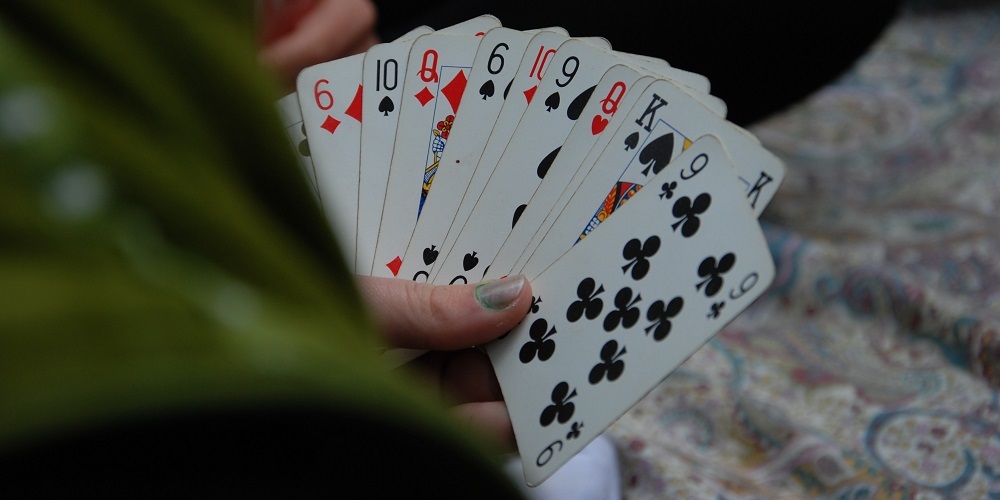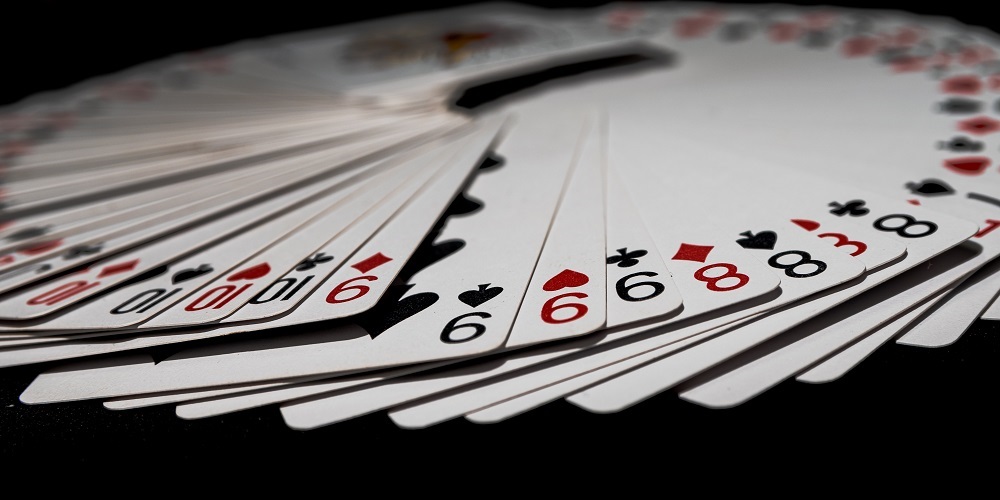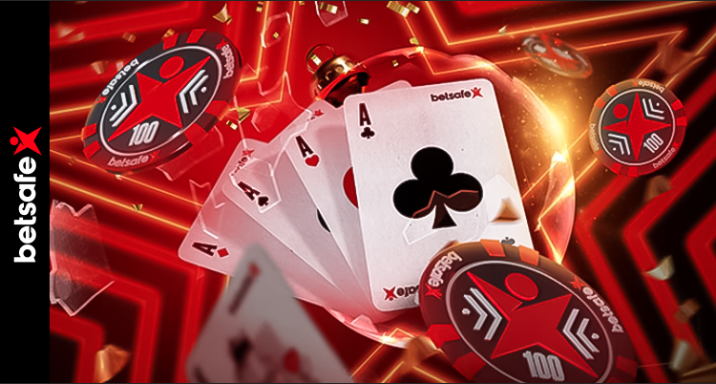

Poker odds part I: definition, types and basics for beginners

Although we have already dedicated an article to talk about odds and outs in poker, named Poker mathematics: outs and odds explained being such an important element in a poker game, we are going to unravel all the key aspects of odds, their types, how they influence a game and how to calculate them to be able to master them and use them in the future in professional poker games.
What are poker odds?

A simple definition of odds in poker would be
the number of probabilities that exist for something to happen. Since
probability is the basis of every poker game, being aware of what chances you
have at every moment to achieve your goal is crucial for a correct decision
making and / or minimize damage in case the game goes against you.
There are several types of odds in poker, depending on the element they affect or the context in which we refer to those odds: odds in general sense, pot odds, implied odds and reverse implied odds are the four types of odds that are handled in online poker, although not all at the same levels.
Odds in multi-table tournaments (MTT)
In multi-table tournaments, the odds will
always give us the key to know how much we have to bet in each moment.
This will allow us to get involved in the hands
that best suit us, accepting the best ones and rejecting the ones that
are not worth playing.
At all times we have to follow the maxim that a
bet will be profitable if it offers us more money per euro bet. If it does
not, clearly that bet does not suit us and we will have to stay out.
In other words: the risk of losing has to be compensated by the expected profit, in relation to the probability of its occurrence. Calculating this balance is paramount in an MTT.
Implied Odds
They are calculated by dividing the total
amount of money you can win in a particular pot by the chips you put in that
pot. Be careful: it
is possible that at the beginning the result will tell us that it is not
profitable to bet.
Whenever we get this result, we have to take
into account the implied odds, that is, the chips that presumably (watch
out for this conditional) the villain is going to bet postflop.
Maybe then you will see the profitability in
the play. The key is to look at the long term and not just look at the odds
of the moment.
The best way to play implied odds and take advantage of their profitability is to keep the pot as small as you can. That will allow you to go for your project.
Reverse implied odds
Imagine that you have a hand with potential and
yet, even improving, it may come second and not first. Then the best thing to
do is not only to calculate the implied odds, you have to go further: to discount
odds by calculating the reverse implied odds.
The reverse implied odds are fundamental in multiplayer pots, where, very often, we can come second with a good hand that we have even improved. One mistake is to play aggressively when it is not your turn. You should only go for the jugular when you have the best potential play.
Odds
in No Limit Hold'em (NLH)
In No Limit Hold'em, calculating the pot odds
is fundamental. Pot odds are the ratio of the odds to the chips in the pot.
Calculating it will allow us to know what amount is appropriate to bet at
the moment we are playing for the pot.
In NLH, the odds calculation is usually
combined with the expected value calculation, which is the average
profit or loss of a specific action. If we expect a positive calculation, we
will reflect it with EV+. If we expect a negative value, with EV-.
Fold equity, the percentage of victory that our cards have over the villain's cards, also has a lot to do. Everything has to do with the calculation of probabilities, and the more variables you introduce with precise values, the more data you will handle and the better decisions you will be able to make.
Odds
in Sit & Go poker (SNG)
In Sit & Go poker, the calculation of
implied odds and pot odds is key, especially in tournaments, where pot
commitment is especially important. A wrong calculation of the odds can
leave you committed to the pot with a bad hand, and there you will have little
room for maneuver, so knowing where you put yourself in advance is crucial.
There are times when it is a mistake to take
into account the implied odds, and in Sit & Go tournaments it happens
particularly often. It happens more often than you think that a villain
connects to the flop with a flush or straight draw, and we find ourselves with
a good hand that is not guaranteed to be the nut.
We don't calculate implied odds here, because we can get into trouble by getting involved in a hand that is not ours. Our hand may have potential for improvement, but we must not forget that, faced with the possibility of facing a straight, we are sold.
Odds
in Limit Hold'em
Everything we have explained about the use and
calculation of odds in other types of poker competitions is useful in Texas
Limit Hold'em games. However, it is here when we tend to hold on to the
chips the most, even if the odds are telling us that we are going to hit our
heads up in the showdown.
It is very common to think that, since we're
all in and we've put a lot of chips in the pot, we'll stay in until the end. Burning all your chips just to see
how you lose it all is not an option, so forget about it.
Keep in mind that the odds are only valid for a
specific moment of the game, except for the implicit odds, which take
into account the foreseeable moves of the villain on later streets. That is to
say, the odds change every time a new card comes out, so you will have to
recalculate them every time the situation on the table changes.
This exposes you to have an excellent
preflop hand, you get even, the flop keeps smiling at you, you get to the
turn, you see that there is a small margin of failure, and on the river your
worst fears come true and you lose. This has happened to you because you have
taken into account the odds that you have calculated preflop or on the
flop and you have not recalculated.
Either that, or you have wanted to continue
until the end seeing that in the preflop you have put a lot of chips and you
are afraid to give up before burning all the possible cartridges.
Assume, therefore, that the money you have put in the pot is from the pot, it is no longer yours. Get rid of it if the numbers don't work out.
Odds
in 6-max poker
Shorthanded poker games, usually 6-max, but also 4-max or
5-max, are usually implied odds games. In fact, in 6-max games the implied odds
are incredible because the opponents always show a clear skepticism. No matter
what we do, they will not believe us, but we can take advantage of this by
going face up at all times and using their distrust to our advantage.
Remember this: 66% of the times you get to the
showdown and play against two opponents, at least one of them will have
double pairs. The result may be bad for us, but that does not mean that we have
played badly. In fact, in shorthanded poker, continuing to play based on
implied odds is the right thing to do. In the end, you'll find that playing
protecting your hand is the best way to make the pot.
Shorthanded poker is usually a gathering of players who don't know how to play. They tend to be short-sighted and gamble compulsively. Because of that, it is a loose-aggressive game even at low levels. Using that to your advantage can be good for you, even when in a showdown a pair of doubles surprises you and leaves you broken. If you protect your hand and play loose-aggressive, the game will be yours in the end.
Odds
in Pot Limit Omaha High (PLO High)
In Pot Limit Omaha High you must have correctly
read your opponent's game from the beginning so that your odds calculations are
correct, especially the implied odds. You must know how he is going to
react, how he is going to play and what he expects to get. In fact, be very
careful with the implied odds in Omaha, because they are the ones that will
condition your game.
Nor should you lose sight of the reverse odds. Experience says that when you bet and instead of raisearte they call you, it is because they have some project. If you call a bet, they will think of you as a project. You can use this to your own advantage, although it is not in your best interest to get into trouble on your own.
Odds
in Pot Limit Omaha High-Low (PLO High-Low)
A key factor in calculating the odds in Pot
Limit Omaha High-Low games is that the value of the low cards becomes less
and less as more high cards are on the flop. This affects your odds, so be very
careful, especially when we are on the verge of having the nut of the low
almost guaranteed but we do not see winning high.
It is time to think about taking outs to make
the play profitable. A good way to increase this profitability is to
play postflop with the nut for the low.
And do not forget to always rely on the position: if you do not take it into account, there will be no odds or outs that are worth because you will not be planning the game well.
Types of odds and their characteristics

In summary, and so that you have clear what we
refer to each type of odd, we are going to give you some outlines so that you
can have a general idea of what these terms that we use recurrently mean:
- Odds. As a generic term, odds are the probabilities of something happening in poker. They have a direct relationship with outs, a term used to calculate the probability of something not happening in online poker. That is why we almost always talk about "odds and outs" together.
- Pot odds. Pot odds are the odds that take into account the size and magnitude of the pot in a specific phase of the game. They do not take into account the bets that occur after the round, that must be clear.
- Implied Odds. Very important especially in Omaha poker. They are the odds that not only take into account the size of the pot, but also the chips that can be obtained with future bets.
- Reverse implied odds. They calculate the size of the pot and how much money can be lost with future bets. They are reversed because they calculate how many chips we can take away instead of adding to our stack.
Odds vs outs in online poker

In poker, odds and outs go hand in hand. If you calculate the probability
of something happening during the game, calculate at the same time the
probability of it not happening. Handling this data is vital to make the right
decisions at all times.
- When calculating the odds and outs in the middle of a poker game, you have to take into account the following:
- A full deck of poker consists of 52 cards.
- The hole cards vary according to the type of poker you play. In Texas Hold'em there are 2; in Omaha poker, 4.
- Each of the suits (4 in total) is made up of 13 cards.
- The odds change depending on the project you are pursuing and the cards that are added to the table. Therefore, it is crucial that you constantly re-calculate; otherwise, you run the risk of making decisions based on odds that are not in effect.
If you were interested in this article, do not miss these posts to complete your knowledge about implied odds:
You may also like

Poker Strategies for Low Stack Situations: Stay Calm and Maximize Profits
Poker Strategies for Low Stack Situations: Stay Calm and Maximize ProfitsPoker Strategies for Low Stack Situations: How to Stay Calm and Maximize ProfitsPlaying poker with a low chip count, or "sho...

TIPS to improve your results in poker
First of all, lots of water and hydration, then:'Let's calm down..."Your mood will always influence your game. If you are tired, angry about personal issues or it just hasn't been a good day, don't...

Poker Face 2" Returns with More Mystery and a Star-Studded Cast
Poker Face 2" Returns with More Mystery and a Star-Studded CastCharlie Cale's Comeback: "Poker Face 2" Premieres SoonAfter a successful first season, Poker Face is back with a second installment, m...













